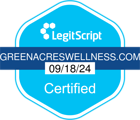Addiction is a complex and challenging condition that affects millions of people worldwide. It doesn’t discriminate based on age, gender, or background, and it can take many forms, from substance abuse to behavioral addictions. Traditional addiction treatment methods often focus solely on the physical aspect of recovery, but holistic approaches recognize that addiction is a multi-faceted issue that requires a comprehensive approach to healing.
Understanding Holistic Addiction Recovery
Holistic addiction recovery is a philosophy that treats addiction as a whole-person issue. It acknowledges that addiction affects not only the body but also the mind and spirit. Therefore, successful recovery requires addressing all these dimensions simultaneously. Here’s a closer look at each component of holistic addiction recovery:
Mind
The mind plays a central role in addiction. Psychological factors such as trauma, stress, anxiety, and depression often contribute to the development and persistence of addiction. Holistic approaches to addiction recovery prioritize mental health and well-being by offering therapies that promote self-awareness, emotional healing, and cognitive restructuring.
Common forms of holistic therapies for the mind include:
- Counseling and Psychotherapy: Traditional talk therapy, as well as more specialized forms like cognitive-behavioral therapy (CBT) and dialectical-behavior therapy (DBT), help individuals address underlying emotional issues and develop healthy coping strategies.
- Art Therapy: Expressing emotions and experiences through art can be therapeutic and provide a creative outlet for self-expression and healing.
Body
The physical aspect of addiction recovery involves detoxification, restoring physical health, and adopting a lifestyle that supports well-being. Holistic addiction recovery recognizes the importance of nourishing the body through proper nutrition, exercise, and alternative therapies.
Common forms of holistic therapies for the body include:
- Nutritional Therapy: A balanced diet is crucial for repairing the body’s systems damaged by addiction. Nutritional therapy aims to provide individuals with the nutrients necessary for healing and restoring physical health.
- Yoga: This ancient practice combines physical postures, breathing exercises, and meditation to improve physical and mental well-being. Yoga can help individuals reconnect with their bodies and manage stress.
- Acupuncture: Acupuncture involves the insertion of thin needles into specific points on the body to promote healing and balance. It is believed to reduce cravings and alleviate withdrawal symptoms.
Spirit
The spiritual dimension of holistic addiction recovery does not necessarily refer to religious beliefs but rather to a sense of purpose, meaning, and connection with something greater than oneself. Addiction often leads to a loss of spirituality, and holistic therapies aim to restore a sense of inner peace and purpose.
Common forms of holistic therapies for the spirit include:
- Meditation and Mindfulness: These practices can help individuals reconnect with their inner selves and cultivate a sense of spiritual well-being.
- Nature Therapy: Spending time in nature can be a deeply spiritual experience for many people. Nature therapy involves activities like hiking, camping, and ecotherapy to promote a sense of connection with the natural world.
- Spiritual Counseling: Some individuals find solace and guidance in spiritual counseling, which may involve exploring their beliefs, values, and purpose in life.
Benefits of Holistic Addiction Therapies
Holistic addiction therapies offer a wide range of benefits that extend beyond traditional approaches to addiction recovery. By addressing the mind, body, and spirit, these therapies aim to treat the whole person and provide a more comprehensive and sustainable path to recovery.
Here are some of the key benefits of holistic addiction therapies:
- Comprehensive Healing: Holistic therapies recognize that addiction is not just a physical issue; it affects the mental, emotional, and spiritual dimensions of an individual’s life. By addressing all of these aspects, holistic therapies provide a more comprehensive approach to healing.
- Reduced Relapse Rates: Holistic therapies aim to uncover and address the underlying causes of addiction, such as trauma, stress, and emotional pain. By tackling these root causes, individuals are less likely to experience relapse.
- Improved Emotional Well-Being: Holistic therapies, such as counseling, art therapy, and mindfulness meditation, help individuals better understand and manage their emotions. This leads to improved emotional well-being, reduced anxiety and depression, and better coping skills.
- Enhanced Physical Health: Many holistic therapies incorporate elements of physical well-being, such as yoga and nutritional therapy. These practices promote physical health and healing, helping the body recover from the damage caused by addiction.
- Stress Reduction: Mindfulness practices, meditation, and yoga are effective in reducing stress levels. Managing stress is crucial in addiction recovery, as high levels of stress can trigger cravings and relapse.
- Improved Self-Awareness: Holistic therapies encourage individuals to become more self-aware and in tune with their thoughts, feelings, and behaviors. This self-awareness is a valuable tool for identifying triggers and making healthier choices.
- Better Coping Mechanisms: Through holistic therapies, individuals learn healthier ways to cope with life’s challenges and stressors. Instead of turning to substances or addictive behaviors, they develop positive coping mechanisms.
- Enhanced Mental Clarity: Practices like mindfulness meditation can improve mental clarity and cognitive function. This can help individuals make more informed decisions and set clearer goals for their recovery.
- Promotion of Inner Peace and Spirituality: For those who choose to explore their spiritual side, holistic therapies provide a supportive environment. This can lead to a sense of inner peace, purpose, and connection with something greater than oneself.
- Increased Self-Esteem and Self-Confidence: As individuals make progress in their holistic recovery journey, they often experience an increase in self-esteem and self-confidence. This newfound self-worth is essential for maintaining long-term recovery.
- Supportive Community: Many holistic therapy programs foster a sense of community and support among participants. This sense of belonging can be crucial in helping individuals stay motivated and committed to their recovery.
- Personal Growth and Transformation: Holistic addiction therapies encourage personal growth and transformation. Many individuals find that their recovery journey not only leads to sobriety but also to a deeper understanding of themselves and their life’s purpose.
- Long-Term Success: Because holistic therapies address multiple dimensions of addiction, they are often associated with long-term success in recovery. By treating the underlying causes and providing individuals with tools for ongoing self-care, holistic therapies set the stage for a lifetime of sobriety.
At Green Acres Wellness, we offer a range of holistic services that integrate mindfulness practices into our addiction treatment programs. Contact us today to learn more about how our holistic approaches can support your recovery.

